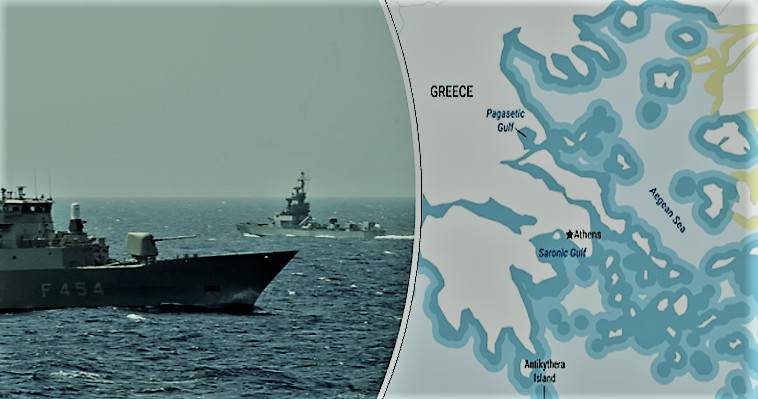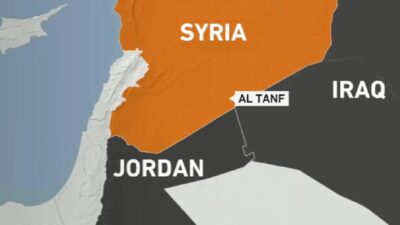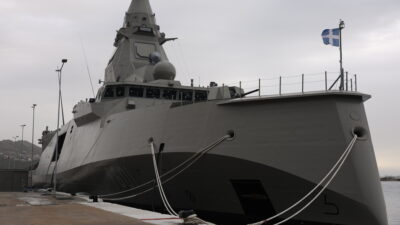Kostas Grivas: How can Turkish expansionism be voided – The Aegean as a hybrid “maritime-land” geopolitical structure
09/06/2020
By professor Kostas Grivas
With Turkey announcing research just outside the territorial waters (six nautical miles) of the Greek islands of Rhodes, Karpathos and Crete, the need for “out of the box”s approaches is becoming vital. It is important to realize that land-based power networks in the Aegean de facto expand territorial waters to 12 nautical miles and have turned much of the Eastern Mediterranean into an area of informal Greek national sovereignty.
In a series of previous articles on SLpress, we examined the positive effects on the Greek defense and deterrence capabilities, the national economy and the geopolitical value of Greece, the use of the Aegean archipelago structure as a base for the development of an ultra-network (grid-of-grids) for anti access and area denial (A2 / AD).
This will basically consist of existing artillery systems, equipped with advanced munitions and integrated into a decentralized network-centric structure. However, the development of this complex may have very significant positive consequences in another area. That of the expansion of territorial waters to 12 nautical miles and the safeguarding of the EEZ.
In particular, as we have seen in an earlier article, the initial range of territorial waters that was set at three nautical miles was largely shaped by the maximum range of ground artillery at that time. It was the so-called “cannon shot rule” that formed the basis on which the legal concept of territorial waters was built.
Land extension
In very general terms, we could say that territorial waters are the extension of land into the sea through land military power. In simpler terms, territorial waters are the marine space where, in the duel between land and sea power, land power has an advantage. Consequently, a similar terrestrial multi-layered power projection grid to the sea, within an archipelago structure, is a cohesive element that connects all islands into a single unit.
It also turns the sea between them into a “natural” extension of the land and de facto resolves the issue of expanding territorial waters through an “fait accomplis”. Of course, this is far from a de jure solution in favor of Greek interests, but it forms a positive situation for Greece at the foundation of the concept of territorial waters.
In any case, the Greek-Turkish dispute, in terms of territorial waters, but also the EEZ, will be largely regulated by broader global geopolitical developments, which will lead to significant upheavals in the current Law of the Sea Convention. In particular, as argued in a previous article, many countries in the world, with China in the forefront, have begun to consider the EEZ’s 200 nautical miles as a place where they have the right to exercise full sovereignty and not just the right to exclusive economic exploitation.
Russia also believes that due to the apparent melting of the Arctic ice sheet, it is critical for its security to have full control of the Arctic at a distance of several hundred kilometers from the Russian coast. Even India, a major strategic competitor to China, is identifying with China’s position on sovereign rights in the EEZ. Many other countries have similar positions.
The “enrichment” of the EEZ concept
So, the “enrichment” of the concept of EEZ, as a place within which national sovereignty may be exercised and not just used for exclusive economic exploitation, is something that has already emerged. In conclusion, the EEZ gradually tends to acquire properties that territorial waters have had up to now. As mentioned above, territorial waters, as a legal concept, are based on the ability to project power from land to sea.
So, through the construction of multi-complexes for anti-access and area denial of the region in the archipelago structure of the Aegean (and Crete), Greece would reap multiple benefits. Benefits of strategic importance to its defense, its geopolitical activities and its national economy. It would also acquire a strong card to secure twelve nautical miles of territorial waters and secure the EEZ it is entitled to. And in fact it will be an “enriched” concept of the EEZ, which will function to a significant degree as an area in which to exercise national sovereignty.
The Aegean turned into a lake
In the event of such a development, the geopolitical specific weight of Greece will increase further, as the entire Aegean and much of the Eastern Mediterranean will be transformed into a compact space of Greek national sovereignty. The unification of the Aegean archipelago land masses with the surrounding sea areas, and through them, will create a kind of “Greater Greece” with a hybrid “marine-land” geopolitical structure, decisively enhancing the international role of Greece.
Finally, as the author argued in a previous article, on SLpress.gr referring to the international trend for the evolution of the concept of EEZ in the field of national sovereignty, “we must keep in mind that if Greece does not proceed with the development of a force architecture that will make the Aegean a “Greek lake”, it is very likely that Turkey will do it, instead. In fact, it is already doing so.
“The triptych of the F-35 Lightning II fighter jets, the S-400 long-range air defense system and a family of Turkish-developed ballistic missiles, which may include guided ballistic missiles against ships (ASBM) in the future, threatens to create a “dome” of action denial for the Hellenic Air Force and the Hellenic Navy, with all the implications on what this may mean, in the long run, for the national sovereignties of the two countries “.





